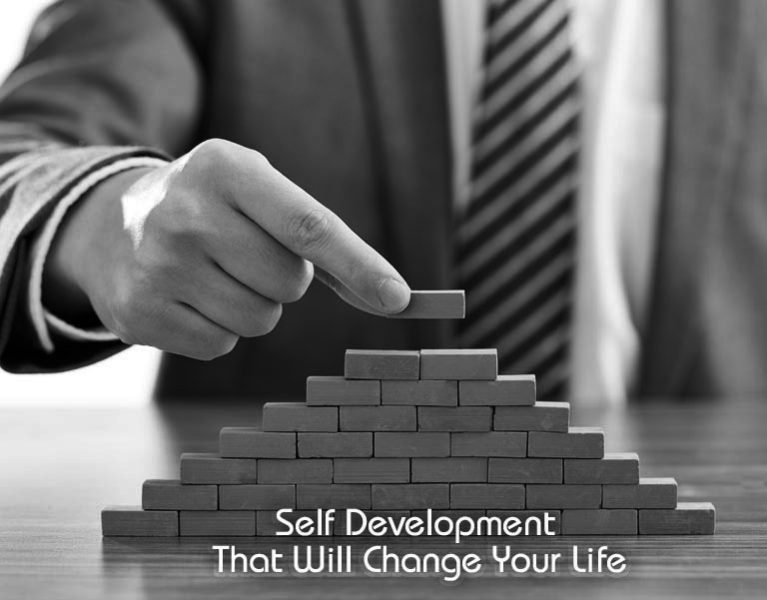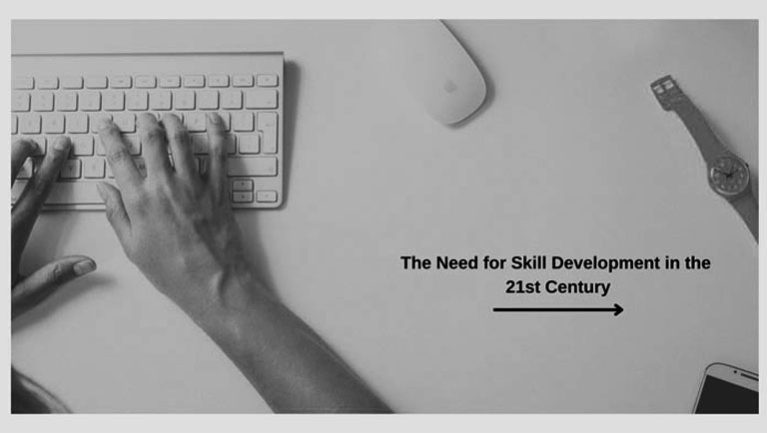
Professional Career Development
Our education system expects the youth to make decisions about their career very early in life.

“The goal is not to be better than the other man but your previous self.”
-Dalai Lama
Our mind is our biggest asset, but also our biggest obstacle. It is the most important tool we possess, but it’s useless if we don’t know how to apply it. Self-development books can play a vital role in helping you learn how to befriend your mind, control it and become more self-aware. These books show you the formula of not just surviving but conquering life.
Here’s our list of top five books from some of the best authors to help you take charge of your own life and be the best version of yourself.
James Clear is a writer and author focused on habits, decision-making, and continuous improvement. His work has appeared in the New York Times, Time and Entrepreneur, and on CBS this morning and is taught in colleges around the world.
When James Clear was in high school, a loose bat smashed right into his face. Fractures, brain swellings. With dislocated eyes and a broken nose, his recovery took months. Trying to get his own baseball career back on track, he started learning about the power of small routines and good habits accumulating which lead him to become one of the 33 players on The American Academic team. Now he’s the author of one of the New York Times bestseller books, Atomic Habits, the most popular habit researcher and inspires millions through his writings and blogs.
Atomic habits are the definitive guide to breaking bad behaviors and adopting good ones. Clear tries to show how small, incremental, everyday routines compound into massive, positive change over time. He defines an atomic habit as regular practice or routine that is not only easy to do but is also a source of incredible power; a component of a system of compound growth. He believes bad habits tend to reoccur, not because you don’t want to change but because you have the wrong system for change. Clear focuses greatly on an individual’s environment and thinks of it as an invisible hand that shapes human behavior. He discusses the laws of behavior change which act as a vital catalyst to understanding and transforming one’s behavior or habits.
“It’s not whether you “feel” like putting in the work, but whether or not you do it regardless.”
Brianna Wiest is an American writer, author, and poet. She is best known for her work in mindfulness, spirituality, and emotional intelligence. Some of her popular published works include The mountain is you, 101 essays that will change the way you think, Ceremony, and The human element.
In her book, The Mountain is You, Wiest tries to provide a guideline to eliminate self-sabotaging behaviors and help readers discover their true potential. She believes that life is always working in our favor, even when it seems like we are only being faced with challenges, adversity, and discomfort. She has used the term ‘mountains’ throughout the book as a metaphor for life’s challenges and obstacles which she considers necessary for our growth and development.
Wiest reflects on the importance of an individual’s subconscious mind and how it is responsible for self-sabotage and thus focuses on self-awareness and identifying one’s core commitments. She also talks about how staying in our comfort zone can hinder our growth and therefore encourages actively engaging in new activities and seeking opportunities that fit one’s passion and desires. The book is recommended for anyone who wants to navigate their emotions better or build emotional intelligence.
“Vulnerability sounds like truth and feels like courage.”
-BRENE BROWN
Casandra Brene Brown is an American professor, lecturer, author, and podcast host. Brown is known in particular for her research on shame, vulnerability, and leadership. She has written six number one New York Times bestselling books, hosts two podcasts, and is known for her TED talks.
In the book, brown talks about vulnerability and how it is one of the most powerful explanations for human behavior. “Daring Greatly” is about embracing vulnerability and imperfections. Brown tries to make her readers understand that vulnerability is a sign of strength and not weakness. Allowing yourself to feel something that makes you vulnerable is a sign of courage.
Brown suggests her readers identify and pinpoint what actually makes them feel ashamed and say it out loud to take away power from shame. She believes no one wants to talk about things that they’re ashamed of, which gives shame more power. Addressing shame directly she believes is the way to deal with discomfort or guilt caused by the shameful situation. Brene also talks about parenting and how making your home and family a shame-free zone is significant to create an environment that promotes growth, development, and self-love.
The book can be recommended to anyone who deals with self-esteem and self-confidence issues and for parents who are trying to be better role models for their children.
THE GO-GIVER:
“Your true worth is determined by how much more you give in value than you take in payment.”
-BOB BURG
Bob is the author of several books on sales, marketing, and influence with total book sales approaching 2 million copies. The American management association named Bob one of the most 30 influential leaders and he was named one of the Top 200 most influential authors in the world by Richtopia.
Bob is an advocate, supporter, and defender of the free enterprise system, believing that the amount of money one makes is directly proportional to the people one serves. In this contemporary world of constant hustle and bustle, where everyone is trying to achieve something, Burg encourages an alternate view of giving and serving others. The book provides a framework to not only help you excel at business but also improve relationships and accomplish your goals in life. The Go-Giver revolves around “The five laws of stratospheric success” which the protagonist of the book ‘Joe’ learns and applies in his life to propel his phenomenal success.
It’s a good book for anyone trying to excel at work, business, or life in general.
THE SUBTLE ART OF NOT GIVING A F***:
“The desire for a more positive experience is itself a negative experience. And paradoxically, the acceptance of one’s negative experience is itself a positive experience.”
MARK MANSON
Mark Manson is an American self-help author and blogger. As of 2022 he has authored or co-authored four books, three of which The Subtle Art of not Giving a F***, Everything is f****d: A book about hope, and Will, were The New York Times bestsellers.
In the book, Manson has tried to provide his candid thoughts and approach to leading a better life by embracing the negative emotions and shortcomings and prioritizing good values. He encourages his readers to identify their emotions and take appropriate actions. Negative emotions, he believes are a call to action and thus one should find its underlying root cause and figure out a solution to resolve the problem.
Manson also focuses greatly on improvement. Success, happiness, and everything that feels great in life have no escalators but stairs. A person who seeks constant improvement tends to see challenges as opportunities, and never fails to grow and learn.
If you struggle with constant anxiety and negative emotions due to your insecurities and shortcomings or even if you just seek to build positive emotions and adopt good values, this book is for you.
Keep Reading, Keep Improving!!
The Changes is an Organization Development Consulting firm that helps corporates, campuses and individuals to achieve business, functional and personal goals.
We assist professionals and students by designing and delivering learning programs to equip them with the skills that are vital for success in the New World.
Sonia is an internationally certified L&D specialist & soft skills coach. She has been leading behavioural transformations through designing and delivering learning programs.

Our education system expects the youth to make decisions about their career very early in life.

Our mind is our biggest asset, but also our biggest obstacle.

Skill development is no more a matter of choice, it is the core of survival.